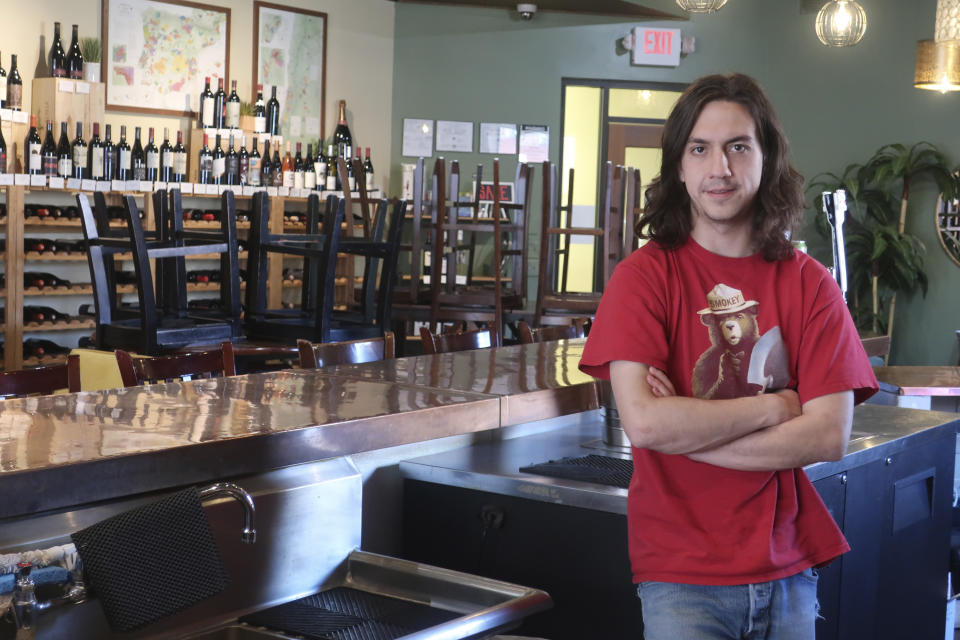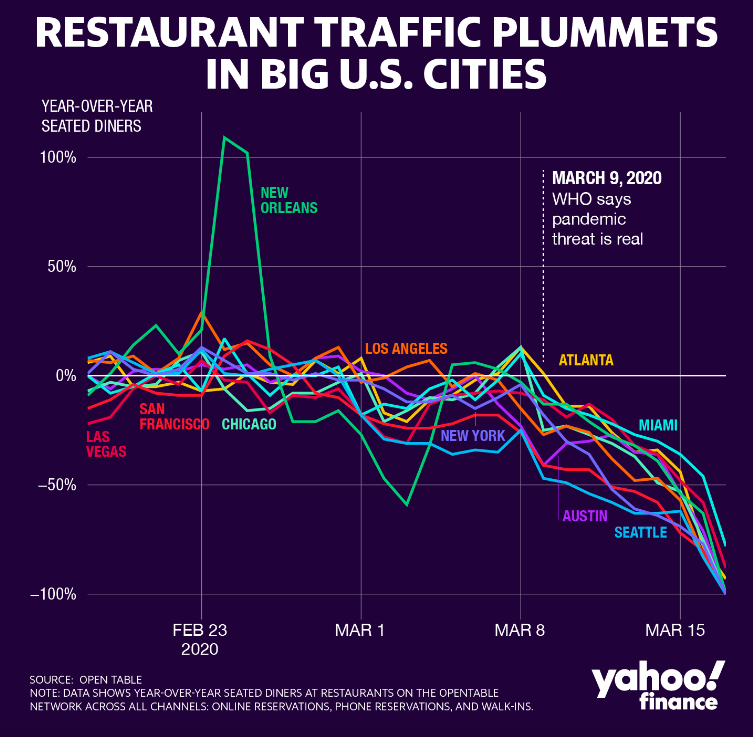Restaurant group projects $225 billion loss, urges lawmakers to act
The National Restaurant Association urged the federal government to create a $145 billion rescue fund, as food establishments across the country close up shop in the face of the global coronavirus pandemic. More than 40 states, including California and New York, have limited bars and restaurants to delivery-only services, leading to a financial loss expected to total $225 billion over the next 3 months and the loss of an estimated 5 million to 7 million jobs, according to the industry lobbying group.
“Our business model is not designed for a government-mandated interruption like this, nor is it designed for an interruption,” Sean Kennedy, executive vice president of public affairs for the association, told Yahoo Finance. “Restaurants generally only have about a week or two of liquidity, and after that is when things start to get very scary, very fast from an operations perspective.”

In a letter to President Trump, House Speaker Nancy Pelosi, and Senate Majority Leader Mitch McConnell, and Kennedy urged Washington to take “critical steps” to support the 15.6 million workers employed by restaurants. Specifically, he called for a the Department of Treasury to create a $145 billion rescue fund to compensate for revenue lost from the COVID-19 outbreak. Kennedy also proposed $35 billion in community-development block grants for disaster relief, $100 billion in business interruption insurance backed by the federal government, $130 billion in disaster unemployment assistance, assistance to help businesses defer loan, lease, and mortgage obligations, as well as tax relief.

“We are preparing for at least not being able to be at fully operational until early May in an optimistic scenario,” Kennedy said.
Trump spoke with executives from some of the country’s largest restaurants on Tuesday, including the CEOs of Domino’s Pizza (DPZ), Papa John’s (PZZA), and Darden Restaurants (DRI) about allowing businesses to stay open even in a limited capacity.
In recent weeks, major restaurants have shifted their operations dramatically to reduce contact among customers and protect their workers from the spread of the virus. McDonald’s (MCD) turned its U.S. company-owned restaurants into drive-thru only. Dunkin’ and KFC (YUM) have limited service to pick-up, drive through, and delivery. Starbucks (SBUX) removed seating from its U.S. stores and shifted to a to-go model.
But since 9 out of 10 restaurants operate with fewer than 50 employees, Kennedy said the larger concern is for the small- and medium-sized establishments to withstand the declines right now, adding that insurance policies generally do not cover closures stemming from public health crises.
“This is not just a sort of isolated hurricane that comes through and businesses are shut down for two weeks, and we get disaster loans and we come back,” Kennedy said. “We don't have insurance that we can fall back on. Some some restaurants are choosing to layoff their employees, but that's a really imperfect solution because we need to at least keep these folks paid and on the payroll so that as soon as these bans are lifted we can go fully operational overnight and ... and resume full service to the customers who are who are really looking for it."
Akiko Fujita is an anchor and reporter for Yahoo Finance. Follow her on Twitter @AkikoFujita
